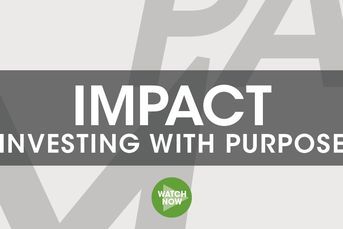Pimco’s El-Erian says 40% to 60% chance of Fed taper this week
There's a 40% to 60% chance that the Federal Reserve will announce a reduction in its asset purchase program tomorrow, according to Mohamed El-Erian, chief executive officer of Pacific Investment Management Co.
There’s a 40% to 60% chance that the Federal Reserve will announce a reduction in its asset purchase program tomorrow, according to Mohamed El-Erian, chief executive officer of Pacific Investment Management Co.
When the Fed does taper, U.S. central bank officials will offer a package of policies, which may include a change in how much they pay banks on excess reserves, thresholds for changing programs and forward guidance on policy, he said in an interview.
“The idea is that the Fed is going to offer the market a package, and the market is going to be reacting to the package and not just one element, which is the taper,” said Mr. El-Erian, whose company oversees $1.97 trillion as the world’s largest manager of bond funds. “The question is what else do they do, and I think that’s what the market hasn’t priced in fully yet, which is what else can accompany the taper decision.”
Chairman Ben S. Bernanke, whose second four-year term ends next month, has quadrupled Fed assets since 2008 with bond purchases intended to lower long-term borrowing costs and reduce unemployment. Vice Chairman Janet Yellen, who may win Senate confirmation this week to replace Mr. Bernanke, has been a supporter of the policy.
The odds of the Fed reducing its $85 billion of monthly government-bond purchases rise “tremendously” by January, and by March “it’s almost a done deal,” Mr. El-Erian said. “I’m still surprised they didn’t taper in September,” he said.
LIMITING DISRUPTIONS
The Fed has said it will keep buying bonds until the outlook for the labor market has “improved substantially.” Thirty-four percent of economists surveyed by Bloomberg Dec. 6 predicted the Fed will start reducing purchases this month, while 26% forecast January and 40 percent said March.
Among officials, “there’s discomfort in the sense that the portfolio could grow almost without limit,” former Fed Vice Chairman Donald Kohn said last week during a panel discussion in Washington. Kohn said there was “discomfort in the potential financial stability effects.”
“The Fed is trying to rotate from a direct instrument, because they’re worried about the collateral damage, to an indirect instrument, a price instrument,” El-Erian said. “So it’s going to be critical whether they offer the market something that’s credible and something that succeeds in limiting the disruptions to the financial conditions.”
(Bloomberg News)
Learn more about reprints and licensing for this article.







